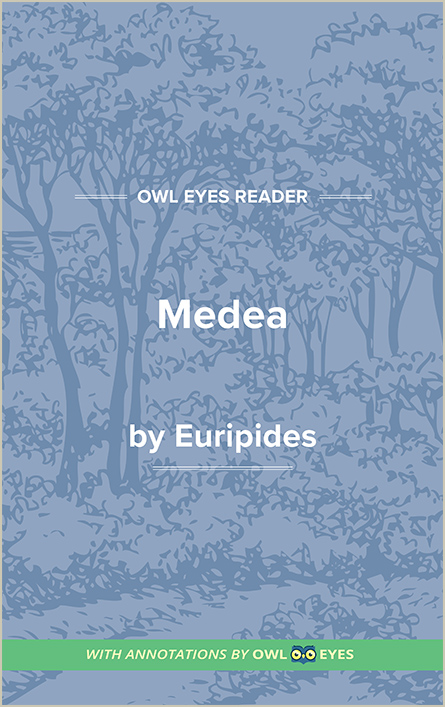- Annotated Full Text
- Literary Period: Classical
- Publication Date: -431
- Flesch-Kincaid Level: 3
- Approx. Reading Time: 1 hour and 20 minutes
Euripides’s Greek tragedy The Medea has horrified audiences for centuries. Originally performed in 431 BCE, The Medea is based on the mythological story of Jason and Medea, the hero who piloted the Argonauts and the sorceress who helped him succeed. The play opens on Medea’s house where her Nurse explains to the audience that Jason has decided to leave Medea and their two children in order to marry Glauce, the king’s daughter, and gain a socially advantageous position. The audience hears Medea shriek from inside the house, scorned, angry, and shamed. She then begins to plot her hideous revenge, all the while detailing the sacrifices she made for Jason. Euripides creates a character so engaging that by the end of the story, Jason still seems more like the villain than the victim. When it was first performed, the play received last place in the City Dionysia festival, a shocking turn of events for the famous playwright. However, this compelling narrative has endured through the ages and become part of popular culture. Euripides does not tell a straightforward story of revenge and murder. Instead, he creates a nuanced, sympathetic portrayal of a woman betrayed and her attempts to regain her power and life in a male-dominated world.
- Annotated Full Text
- Literary Period: Classical
- Publication Date: -431
- Flesch-Kincaid Level: 3
- Approx. Reading Time: 1 hour and 20 minutes

